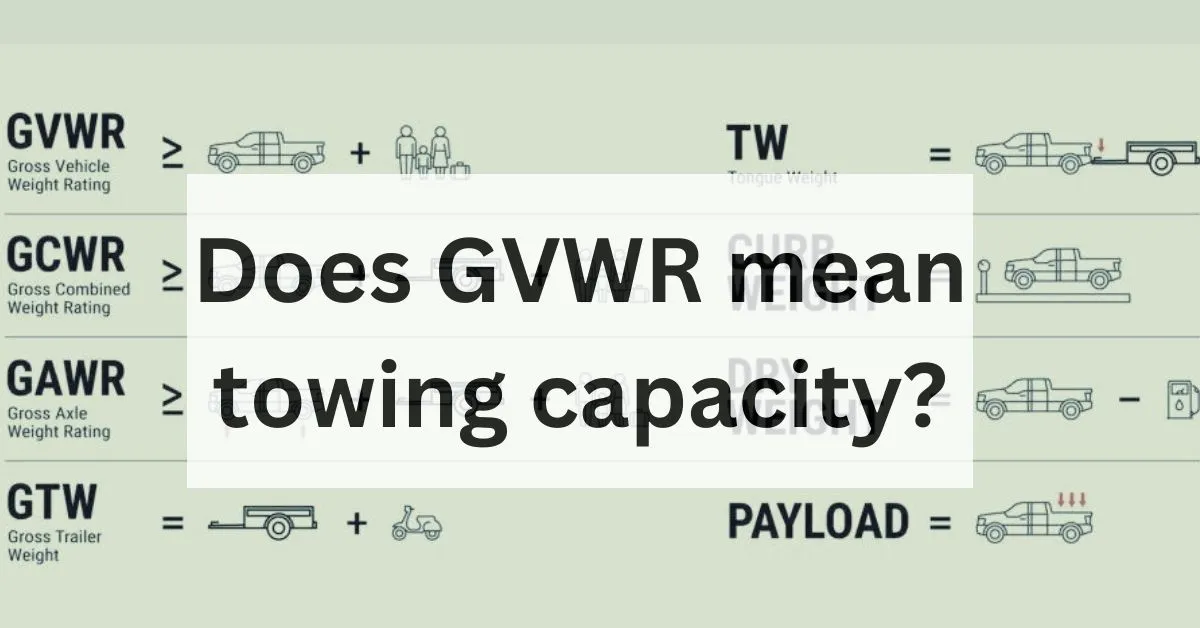The Gross Vehicle Weight Rating (GVWR) of a vehicle is like its own personal weight limit – it covers the maximum allowable mass of the vehicle, including passengers and cargo. But here’s the key point: it doesn’t factor in the weight of any trailer hitched to it.
If you’ve got a trailer in tow, the tongue weight – that’s the weight the trailer puts on the hitch – actually counts against the vehicle’s GVWR. It’s like the GVWR is saying, “This is how much I can handle, and if there’s a trailer, that weight on the hitch is part of the deal.”
So, in simple terms, GVWR is all about the maximum weight capacity of the vehicle by itself, without any trailer attached. It’s the sum total of everything the vehicle can handle – occupants, cargo, and the weight on the hitch if you’re towing.
Now, let’s talk about towing capacity. This is a different ballgame. Towing capacity is all about how much weight your vehicle can pull when it’s towing a trailer. It’s like the car’s superhero strength for hauling stuff. The towing capacity considers the weight of the trailer and its contents, making it specifically about the vehicle’s ability to tow a load on the road.
So, in a nutshell, GVWR is about how much the vehicle can handle on its own while towing capacity is about how much it can handle when it’s pulling a trailer. Two different capacities, each with its own set of rules to keep things rolling smoothly and safely.
Next Question: Can I find out towing capacity by VIN number?
Stellan Carter is an accomplished writer, entrepreneur, and avid Ford Raptor owner. As a co-founder and content contributor for this renowned blog website, Stellan brings a wealth of knowledge and expertise to the automotive industry. When he's not behind the wheel of his beloved Ford Raptor, Stellan can be found exploring new terrains, capturing the essence of his automotive adventures through his camera lens.

